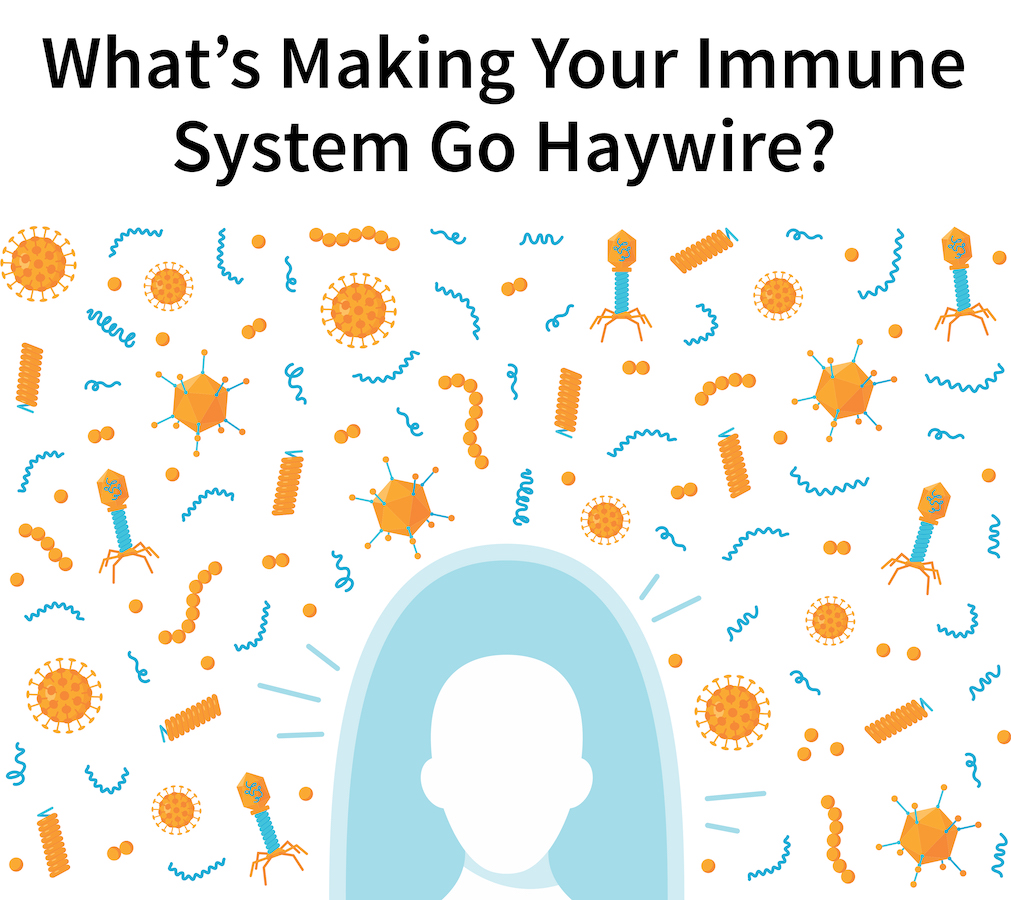What’s Making Your Immune System Go Haywire?
As a doctor trained in the functional medicine approach to healthcare, I spend much of my time discovering and treating chronic illnesses, including those encompassing chronic inflammation, which can often be traced to immune system dysfunction. The COVID-19 pandemic demonstrates daily how an infection can trigger a powerful immune response resulting in inflammation.
With COVID-19, the inflammation primarily impacts the lungs, but it can affect other organs and tissues, as well. Deaths from COVID-19 are typically a result of excessive inflammation caused by the body’s over-the-top immune response.
Inflammation isn’t all bad. In fact, it’s part of the mechanism responsible for enabling the body to fight disease, recover from injury, and repair damaged tissue. Any trauma to the body’s cells triggers an inflammatory response. The immune system releases inflammatory chemicals, which expand blood vessels and cause them to leak, thereby delivering healing cells and substances to the site that’s injured or under attack. The expansion and leaking of blood vessels are what cause the inflammation.
Unfortunately, the immune system can become the body’s own worst enemy, identifying healthy cells as threats and attacking those cells — a condition referred to as autoimmunity. Various autoimmune diseases can develop as a result, depending on the cause and the organs or tissues being damaged. With type 1 diabetes, the immune system attacks pancreatic cells, impairing the body’s ability to produce insulin; with Hashimoto’s thyroiditis, the immune system attacks the thyroid; with rheumatoid arthritis, it primarily attacks the joints; with multiple sclerosis (MS) and Guillain-Barré syndrome, it attacks nerve cells; with myocarditis, it attacks the heart; and so on.
The exact mechanism that gives rise to an autoimmune disease remains a mystery. However, evidence suggests that the cause may be traced to a genetic susceptibility triggered by one or more environmental factors, which may include chronic stress, poor diet, gut dysbiosis (an imbalance of microorganisms in the intestines), infections, environmental toxins, as well as other stressors.
Recent research points to viral and bacterial infections as being major triggers for several autoimmune diseases, including the following: Continue reading…




